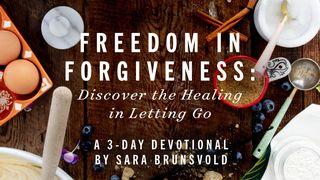Reading With the People of God #10 Kingdomنموونە

Focus of the month: (Kingdom)
7 Now, therefore, thus shall you say to my servant David, ‘Thus says the LORD of hosts, I took you from the pasture, from following the sheep, to be prince over my people Israel, 8 and I have been with you wherever you have gone and have cut off all your enemies from before you. And I will make for you a name, like the name of the great ones of the earth. 9 And I will appoint a place for my people Israel and will plant them, that they may dwell in their own place and be disturbed no more. And violent men shall waste them no more, as formerly, 10 from the time that I appointed judges over my people Israel. And I will subdue all your enemies. Moreover, I declare to you that the LORD will build you a house. 11 When your days are fulfilled to walk with your fathers, I will raise up your offspring after you, one of your own sons, and I will establish his kingdom. 12 He shall build a house for me, and I will establish his throne forever. 13 I will be to him a father, and he shall be to me a son. I will not take my steadfast love from him, as I took it from him who was before you, 14 but I will confirm him in my house and in my kingdom forever, and his throne shall be established forever.’ ”.
- 1 Chronicles 17:7-14
The Sorrows of Sin - II Samuel 13:13-39
Nathan, the prophet, brought the LORD’s message to David concerning the punishment for his sin with Bathsheba. God’s judgment is recorded in II Samuel 12:10-12. Ultimately, the sentence was that from that time on, David’s family would live by the sword. His punishment was not eternal but temporal, but what a heavy, devastating price to pay, as we see in this passage and the ones to follow.
We don’t always realize how terrible the consequences of sin are until we see or experience it firsthand. When the results are realized the burden is almost too heavy to bear, in David’s life it will be blow after blow. He has no one to blame but himself. We will see that David’s faith holds even in the midst of heavy loss. Psalm 38 is called a penitential Psalm, and it is believed that it was written in response to the many sorrows David experienced as a result of his grievous sin. Through the events in his life David is brought to true repentance, he abhors his sin as much as God does.
God's purpose is for us to see that the events in David’s life were not by chance. What is in these passages but not first seen, is God. He is revealing Himself and showing us His heart. God is complex, He loves His own but demands justice and punishment for sin. God abhors sin and will not abide it, but He loves the sinner. How can God’s love and justice be reconciled so that the sinner will not have to be punished into eternity?
Under the Old Covenant, He gave a placeholder until the real could come: the blood sacrifice of animals. Reality came in the New Covenant, He gave Himself, in His Son Jesus. God reconciles the most defiled through Himself, granting eternal forgiveness for sin.
In David’s life, we see that the consequences of sin cannot be avoided or dismissed, but the accounting for justice in God’s eyes is satisfied for eternity in the real sacrifice of Christ at Calvary. Repentance, reconciliation, and redemption are the themes of the Bible.
Where Grace Abounds - Romans 6
Paul has been carefully setting out the doctrine of justification by grace through faith in chapters 3-5. Paul has laid out the case that God justifies redeemed sinners freely by His grace apart from their obedience to the Law (3:24–28; 4; 5:1–11). In 5:20, he writes, “but where sin increased, grace abounded all the more.”
Chapter 6 begins with an anticipated argument by some that might say that Paul rejects the Law and gives us the freedom to sin. Paul says absolutely not! Then, he proceeds to tell us why those who have been justified in Christ no longer want to sin. The answer is sanctification.
Paul establishes our union with Christ by showing us that Christ was our substitutionary sacrifice for sin and that God accepted us through that sacrifice. In accepting us, we have been given a new life and the righteousness of Christ. In our union with Christ, we have died to sin, and the life we now live, we live in Him. We have a new master.
Sanctification is the life of a Christian. It begins with a one-time action but is an ongoing process as we grow into spiritual maturity through the application of the Word to our lives. Abundant grace is our incentive, and it empowers us to pursue the right living as we walk in the newness of life.
* Primer contributed by Jinet Troost
کتێبی پیرۆز
دەربارەی ئەم پلانە

This is the tenth installment of a Bible reading plan following the lectionary pattern, featuring daily readings from the Psalms, Old Testament, and New Testament. This month includes a daily reading of God's covenant with David from 1 Chronicles 17, intended to frame our understanding of the overarching Gospel narrative in which 2 Samuel plays a vital role. Each day also includes devotional primers to prepare your heart and mind for meaningful engagement with the Scriptures.
More
پلانە پەیوەستەکان

3-Day Bible Plan: How to Truly Love Thy Neighbor in Today’s World

3-Day Bible Quest: Level 2: Love Unlocked – Powering Up Through Jesus

Chosen and Complete: Embracing God's Plan Beyond Marriage

The Armor of God: Well Used Against Injury

Bold Faith, Mighty Works: Walking in the Spirit’s Power

Freedom in Forgiveness: Discover the Healing in Letting Go by Sara Brunsvold

The Way of the Cross

We're So Blessed: A Fun 5-Day Family Devotional From CAIN

Spiritual Beings
